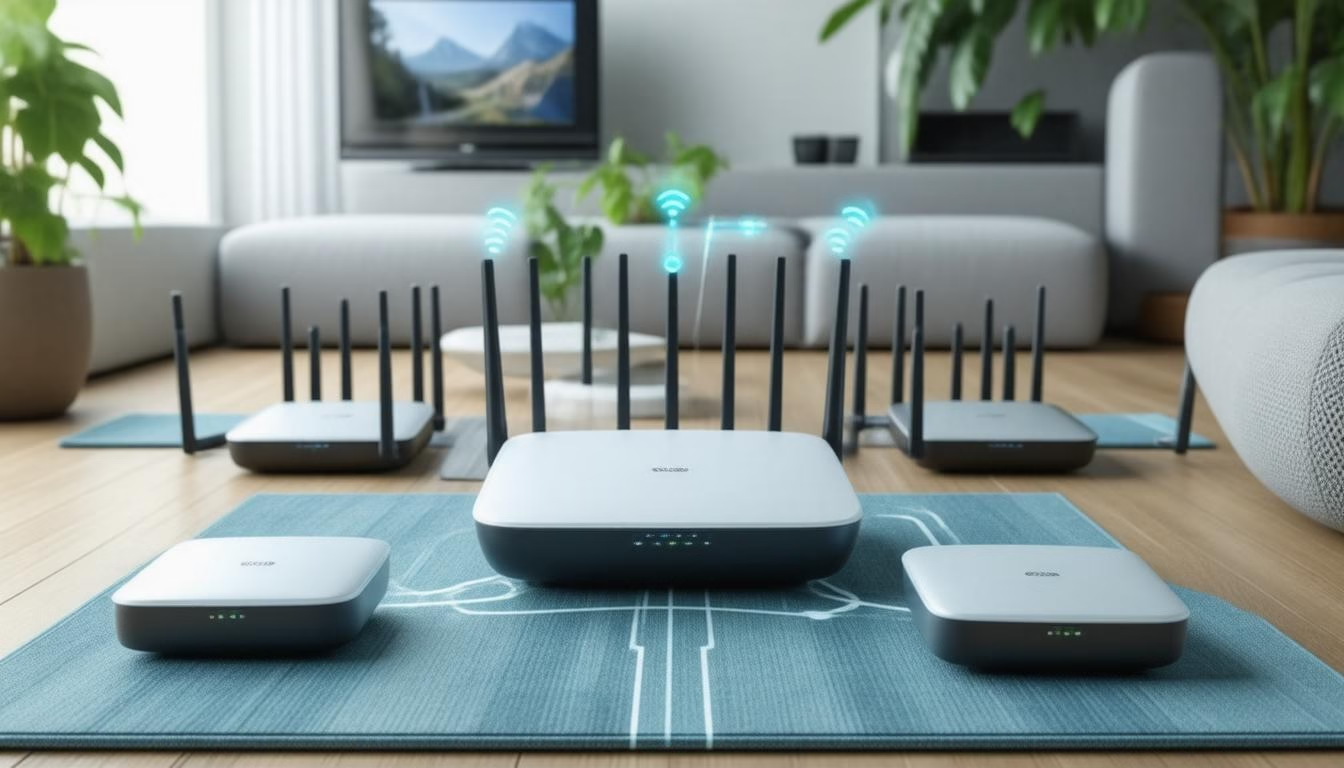In today’s digital age, a strong and reliable internet connection is no longer a luxury; it’s a necessity. With the increasing number of devices connected to home networks, traditional routers often struggle to provide consistent connectivity throughout large homes or buildings with challenging layouts. Enter the mesh network wireless router—a robust solution engineered to blanket your entire space with strong Wi-Fi coverage. This guide delves into what mesh networks are, how they work, and what to consider when selecting the best system for your needs.
What is a Mesh Network?
A mesh network consists of multiple interconnected devices, known as nodes, that create a unified Wi-Fi network. Unlike traditional routers, where the signal diminishes as you move further away from the central location, a mesh network maintains connectivity by allowing devices to automatically connect to the nearest node. This design optimizes coverage, eliminates dead zones, and enhances overall network performance, making it ideal for larger homes or spaces with obstacles that impede wireless signals.
Who Should Consider a Mesh Network?
Mesh networks are particularly beneficial for:
- Large Homes: If your home exceeds 2,300 square feet or has multiple levels, a mesh system can effectively deliver Wi-Fi to all corners.
- Challenging Layouts: Buildings with thick walls (brick, stucco, or concrete) or complex layouts can hinder Wi-Fi signals, making a mesh system a viable solution.
- Smart Homes: Households with numerous smart devices can benefit from the reliability of mesh networks, ensuring that all devices maintain stable connections without interference.
However, if your home is smaller or if a single powerful router can meet your needs, traditional systems may suffice.
Key Features to Look for in a Mesh Router
1. Coverage Area
Consider the size of your home and the coverage area promised by the mesh system. Many systems can cover 4,000 square feet or more with a multi-node setup. Ensure you choose a system that can adequately reach every corner of your space.
2. Speed and Performance
Look for routers that support the latest Wi-Fi standards, like Wi-Fi 6 (802.11ax), which offers faster speeds and improved performance in environments with many devices.

3. Ease of Setup
Many modern mesh systems come with user-friendly mobile apps that allow for straightforward setup and management. Ease of installation is essential, especially for those who may not be tech-savvy.
4. Additional Features
Some mesh systems offer added functionalities, such as parental controls, security features (e.g., built-in anti-malware), and integration with smart home devices like Alexa or Google Assistant.
5. Expandability
Consider whether the mesh system allows for easy expansion, letting you add more nodes as needed to improve coverage.
Popular Mesh Network Options
Best Overall: Asus ZenWiFi AX (XT8)
- Coverage: Up to 5,500 sq. ft.
- Features: Tri-band, extensive parental controls, robust security tools, and multi-gig ports.
- Price: Approximately $399 for a two-pack.
- Pros: Excellent speed and user-friendly app; compatible with other Asus devices.
- Cons: Some advanced settings may require deeper technical knowledge.
Best Budget: TP-Link Deco X20
- Coverage: Suitable for medium to large homes.
- Price: Approximately $180.
- Pros: Offers solid performance at a reasonable price and easy app management.
- Cons: Lacks some advanced features found in higher-end models.
Best for Smart Homes: Eero 6
- Coverage: Up to 4,500 sq. ft.
- Price: Around $200 for a two-pack.
- Pros: Integrates with various smart devices and voice assistants; straightforward setup.
- Cons: Some features may require a subscription.
Best for Outdoor Use: TP-Link Deco X50
- Price: Approximately $150.
- Pros: Designed for outdoor environments, ensuring coverage in yards or patios.
- Cons: May not perform as well inside large homes.
Final Thoughts
Choosing the right mesh network wireless router can significantly enhance your home internet experience. By understanding your specific needs, evaluating key features, and considering your budget, you can select a system that not only provides excellent coverage but also adapts to your lifestyle. With the right setup, you can enjoy seamless connectivity for all your devices, whether you’re streaming, gaming, or simply browsing the web.
As the demand for stable home networks continues to grow, investing in a quality mesh system will ensure you stay connected in every corner of your space.
